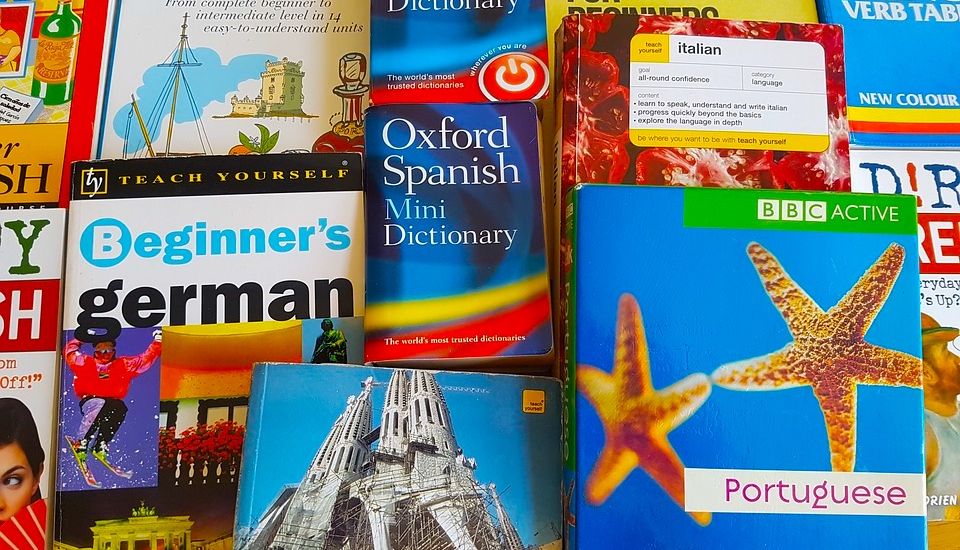

Schoolchildren who grow up in non-English homes should be encouraged, not told off, for using their first language, an expert in children’s development has said.
Dr Cathy Hamer, Chair of the Early Years Childhood Partnership, explained yesterday that children who grow up in non-English speaking backgrounds – such as the island’s Portuguese and Polish communities – could have an advantage at school.
Her comments came following the publication of a £2,675 review of early childhood education in Jersey, which linked quality education at a young age with island-wide benefits including lower crime rates and a more skilled population.
The positive effects of multilingualism are well-documented, ranging from educational benefits such as a wider vocabulary or better grasp of literacy to later career benefits.
But many bilingual island students often lose their skills after years studying within an English-favouring education system.

Pictured: Children growing up with non-English parents could have an advantage, if they embrace their linguistic heritage.
As part of the review, Dr Hamer explained that she reached her conclusions after liaising with parents from as far afield as Zimbabwe and South America.
“It’s about thinking how do we think about working with them to build on their own culture and to engage with them? (…) What messages are we giving to them in using their home language with their children? We need to be really clear that actually parents talking to children in their home language will help them when they come to an English-speaking setting.
“Your home language is your identity, it’s your culture. It’s so important. And to be bilingual or trilingual is huge advantages, and what we don’t want to do is see children losing those home languages,” she commented.
That “journey”, she said, begins before birth. “[It] starts at home inevitably. Children can hear before they’re born so the language of the mum and close associates is already starting to imprint in terms of brain development. We know a lot about early brain development and we know that it’s important that that is stimulated.”
Education Minister Deputy Rod Bryans welcomed the findings, adding that he would be happy to help encourage the development of what he described as “little code breakers” and the part their parents could play in nurturing their multilingualism.

Pictured: The review said that parents can play a vital role in the future's of their children - and the can have a positive effects on the island's crime rates and productivity levels.
But to allow foreign parents to fully engage meant better signposting for some, the review concluded. It found that some parents whose first language was not English did not understand that early registration of interest in a nursery is more likely to secure a place, for example, leaving their children disadvantaged.
Dr Hamer added: “What we’d like to see is… [that] a family knows from the point of conception onwards that they are really clear what services are available to support them through the pregnancy, through the birth and through the early years of that child’s development as they move on towards school.”
High demand for school nursery places in town was also identified as an issue, as well as the affordability of additional care in either schools or the private sector to fit around their work obligations.
In a survey conducted by the Early Years Partnership, more than a third of the 130 respondents listed childcare costs and work-childcare balance as one of the most frequent challenges they faced.
One wrote in a comment: “The high level of working families driven by the high cost of living and the imperative to get as many local people working in the economy creates a system where parents are time poor and under extreme pressure. Mothers in particular, are required to effectively ‘double shift’ to juggle work and home environments.”

Pictured: Some parents say that they're struggling under the costs of childcare in Jersey.
As a result, free access to early childhood education to meet their child’s needs is one of the pillars of the review’s conclusions into how Jersey should adapt its early years education system to give children a strong start in life.
Their suggested first step, however, has already been achieved: scrapping means testing for the Nursery Education Fund. The Minister confirmed a U-turn on the proposals last week, several months after the idea was first suggested by the Education and Home Affairs Scrutiny Panel.
Other suggestions included a focused advisory group to promote the needs of children within their first years of education, investigation into more family-focused policies and the potential creation of dedicated children’s centres.
Dr Hamer commented: The evidence shows that children who benefit from high-quality childcare start school on average three months ahead in their literacy and language skills compared to children who attended low-quality settings and eight months ahead of children who did not attend any childcare. The benefits carry on throughout a child’s life: they are 20% more likely to get 5 good GCSEs and they earn more as adults.
“Jersey has to focus on the needs of all young children taking an all-island approach based on a strong long-term vision. Partnership working is absolutely key to ensuring that all stakeholders are focused on giving children the best start in life”.
Comments
Comments on this story express the views of the commentator only, not Bailiwick Publishing. We are unable to guarantee the accuracy of any of those comments.